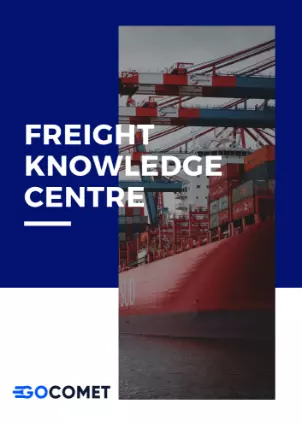Freight Knowledge Base Centre
Resources and FAQs on freight forwarding for logistics and supply chain professionals
Let us know where we can send you the pdf!
GoComet is the #1 AI Powered Transportation Platform Solution Built For Your Business
















Incoterms 2020
Incoterms Explained.
Importance of Incoterms in international trade.
List of Incoterms for your reference.
Incoterms Explained.
If you have anything to do with the world of international trade, there is no avoiding the Incoterms. The freight industry is ruled by a voluntary yet authoritative set of rules known as the Incoterms.
The Incoterms were originally designed by the International Chamber of Commerce (ICC) in 1936 to abolish differences in trading practices and legal understandings among traders around the world. The International Commercial Terms (Incoterms) are a set of standards that determine the responsibilities of buyers and sellers for the safe delivery of goods by all modes of transport. To put it simply, the Incoterms are the guidelines that both buyers and sellers abide by, upon undertaking international or domestic trade.
The areas covered by the Incoterms are:
- The obligations of each party i.e. the individual roles played by the sellers and buyers
- The expenses to be borne by the buyers and sellers
Every 10 years, the Incoterms are updated by the ICC and it is always advisable to refer to the latest version.
The following document and video explain the concept of Incoterms perfectly:
https://www.peterlole.co.uk/uploads/files/downloads/Incoterms%20-%20pdf.pdfhttps://www.youtube.com/watch?v=dUpVkNGA_q0
Importance of Incoterms in international trade.
To maintain uniformity in all trading operations, and avoid miscommunications, importers/exporters alike refer to the Incoterms for smooth sailing.
- The Incoterms are globally accepted and provide predictability to the business
- They guide sellers/buyers on how to conduct transactions and clarify any grey areas in the contract
- They provide clarity on all the updates and help the stakeholders to understand how they apply to global supply chains
Importance of FFA in Air Cargo Movement: https://www.opensea.pro/blog/freight-derivatives
List of Incoterms for your reference.
Some of the most commonly used Incoterms, off the top of our head, are:
- FCA (Free Carrier)
FCA shipping terms require the seller to load the goods on to the buyer’s transport within the premises of the seller. Often, the buyer hires the transport to pick up goods from the seller’s warehouse. The seller also clears the goods for export from the country of origin. After this point, all costs, risk and responsibility lie with the buyer. - FAS (Free Alongside Ship)
FAS shipping terms provide well-defined instructions for the seller about the course of transportation till the port of destination. The buyer assumes responsibility for loading the goods and all related charges after the goods reach the agreed-upon port. - CPT (Carriage Paid To)
CPT terms state that the seller bears the cost of transportation but is not responsible for insurance and the risk of goods is transferred to the buyer after the point of delivery. - CIP (Carriage and Insurance Paid)
CIP terms apply to all modes of transport. This rule is similar to the CPT terms except that the seller is instructed to take responsibility for the carriage and insurance coverage till the port. - DPU (Delivered At Place Unloaded)
DAT(Delivered at Terminal) was changed to DPU (Delivered at Place Unloaded) as part of the revisions of Incoterms 2020.
DPU shipping term states that the seller shoulders all of the responsibility up to and including unloading the goods at the named terminal/site at the destination port. - DAP (Delivered at Place)
DAP terms state that the seller and buyer agree upon the destination. The cost of unloading at the agreed-upon place will be borne by the buyer.
